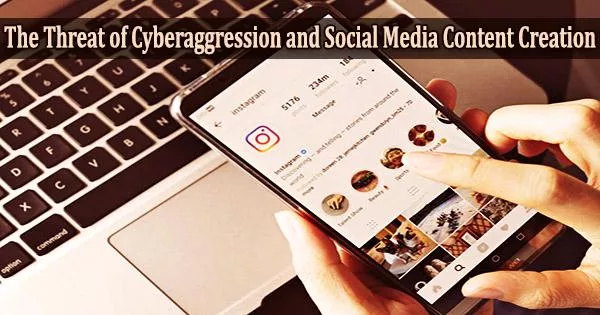By Zanta Yee Fong and Duygu Gulseren
“He looks like a rat.”
“You look like an albino rat.”
“How much money to punch you in the face multiple times?”
“I want to beat him, then $@!? him slowly.”
These are the hate comments Youtuber TheReportoftheWeek found attached to one of his videos.
TheReportoftheWeek is neither the first nor the last online content producer to analyze the abusive remarks they got. Even while we often call these remarks “rude,” they go beyond that. These actions are referred to be cyberaggression behaviors by psychologist Dorothy Wunmi Grigg because they aim to cause harm by using technology.
Previous studies have looked at the harmful impacts of exposure to various types of cyberaggression, such as e-mail contact between coworkers or social media use among school-aged children.
As a research team of two, we wanted to better understand how a newly emerging group of gig workers, online content creators, experience cyberaggression in their everyday work lives (Fong & Gulseren, accepted).
We spoke with content producers and asked them a number of questions about their work and how cyberaggression has impacted their work and mental health. Despite the fact that our research is still ongoing, our preliminary studies produced some insightful results. We will share them under three broad categories: (1) receiving inappropriate comments, (2) targeting creators beyond the virtual setting, and (3) affecting close personal relationships.
Receiving inappropriate comments
The creators who took part in our study reported feeling ongoing pressure to present themselves in a way that was likeable to their audience based on the remarks they received about their appearances. This covers their outward appearance, conception of their bodies, sexuality, and even identity.
When the camera is on, there is constant pressure to look and behave a specific way, which can result in serious problems like anorexia nervosa. This is accompanied by anxiety, low self-esteem, and perfectionism.
Since they are frequently told they are ugly, too big, too little, etc., content creators are used to getting inappropriate opinions. While some commenters could phrase their words in a passive-aggressive way (e.g., “Love you… but I can’t help but notice your nails are stained with dirt”), others could be indirect (e.g., “How do you wear those caterpillar lashes? Do they affect your vision? Serious question”.) or directly rude (“B@?$, you can’t sing”).
Targeting creators beyond the virtual setting
In a more serious case, viewers might attempt to sabotage creators personally. This includes strategies intended to interfere with influencers’ livelihoods through practical means including leveling unfounded charges and getting creators into legal difficulties.
In addition to harming their reputation, this can have a cascading effect that affects brand sponsors and their income. In extreme circumstances, such as the one in which a YouTuber had to deal with stolen social media accounts and multiple complaints made on his behalf to the local police, creators feel compelled to take a hiatus from media platforms in order to protect themselves.
Affecting close personal relationships
Last but not least, because of skewed opinions of oneself and loved ones, cyberaggression can harm authors’ personal relationships with their friends, family, and significant others. In our study, for instance, a YouTuber pair faced criticism after a large number of viewers said the partners were unsuitable for one another.
They began to doubt their connection as a result of the thousands of people’s constant judgment. The pair made the decision to put their work on hold indefinitely after realizing that the hurt caused by those comments began to obscure their true emotions.
How online content creators can protect their mental health
Based on our preliminary findings, we offer a few recommendations for content creators to protect their mental health.
Share with care. Keep in mind that there are over 1 billion people on the internet, and some have hostile intentions. Sharing personal information could be dangerous. Be mindful of what you post and keep in mind that others could manipulate that information against you.
Remind yourself that harm could be intended. Content creators’ lifestyles might look appealing from the outside, but there may be so much darkness behind the scenes. Humans have a propensity to see things from only one perspective, such as adopting an influencer lifestyle. It is not surprising that many young adults want to emulate this behavior.
However, it’s critical to comprehend the dangers this work entails. Content producers need to be mentally prepared for some internet hostility. Reminding yourself that many of the comments you will receive will intend harm can help to dissociate yourself from them. Preparing a mitigation plan in case of a cyberaggression attack can also help to protect your mental health.
Build a support network. Because you chose gig work does not mean that you are alone. You can (and should) connect with people who are going through similar things so you can tell them what got you through it. It’s crucial to live in a community where people can relate to one another’s hardships. Keep your fury and rage under control; doing otherwise could be detrimental in the long run.
Instead, discuss your experience and how it has affected you with someone. Build a support network with others that will help you through tough times. Take a break from social media if necessary to concentrate on your rehabilitation. Many artists experience burnout, loss of motivation, and career regret. To avoid such experiences, take time for yourself.
















